
Akagera National Park: Rwanda's Untamed Wilderness
Akagera National Park is a breathtaking sanctuary located in the northeastern region of Rwanda. This park is a hidden gem that boasts a unique blend of savannah, swamps, and lakes, creating a diverse habitat for wildlife. Visitors can expect to see the Big Five – lions, leopards, elephants, rhinos, and buffaloes – as well as a myriad of bird species, making it a birdwatcher's paradise. The park's landscape is a testament to nature's beauty, with rolling highlands, expansive plains, and a series of lakes that are fed by the Akagera River. One of the highlights of visiting Akagera is the opportunity to embark on a boat safari on Lake Ihema, where you can spot hippos, crocodiles, and a variety of water birds. For those who prefer land-based adventures, game drives offer the chance to get up close and personal with the park's impressive wildlife. In addition to its natural wonders, Akagera National Park has a rich history of conservation. After years of decline due to poaching and conflict, the park has made a remarkable recovery thanks to the efforts of the Rwandan government and conservation organizations. Today, it stands as a symbol of hope and resilience, showcasing the incredible potential for wildlife recovery and habitat restoration.
Local tips in Akagera National Park
- Visit during the dry season (June to September) for the best wildlife viewing opportunities.
- Book a guided tour to enhance your experience and ensure you don't miss any of the park's hidden gems.
- Carry insect repellent to protect yourself from mosquitoes and other insects.
- Consider staying at one of the park's lodges for an immersive experience and to enjoy early morning or late afternoon safaris.
- Don't forget to bring binoculars for bird watching and spotting distant wildlife.
Akagera National Park: Rwanda's Untamed Wilderness
Akagera National Park is a breathtaking sanctuary located in the northeastern region of Rwanda. This park is a hidden gem that boasts a unique blend of savannah, swamps, and lakes, creating a diverse habitat for wildlife. Visitors can expect to see the Big Five – lions, leopards, elephants, rhinos, and buffaloes – as well as a myriad of bird species, making it a birdwatcher's paradise. The park's landscape is a testament to nature's beauty, with rolling highlands, expansive plains, and a series of lakes that are fed by the Akagera River. One of the highlights of visiting Akagera is the opportunity to embark on a boat safari on Lake Ihema, where you can spot hippos, crocodiles, and a variety of water birds. For those who prefer land-based adventures, game drives offer the chance to get up close and personal with the park's impressive wildlife. In addition to its natural wonders, Akagera National Park has a rich history of conservation. After years of decline due to poaching and conflict, the park has made a remarkable recovery thanks to the efforts of the Rwandan government and conservation organizations. Today, it stands as a symbol of hope and resilience, showcasing the incredible potential for wildlife recovery and habitat restoration.
When is the best time to go to Akagera National Park?
Iconic landmarks you can’t miss
Kigali Genocide Memorial
Explore the Kigali Genocide Memorial, a deeply moving tribute to resilience and remembrance in the heart of Rwanda's capital.
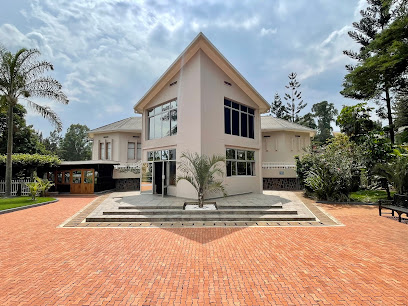
Akagera National Park Rwanda
Experience the wild wonder of Akagera National Park, where breathtaking landscapes and diverse wildlife await your exploration in Rwanda.
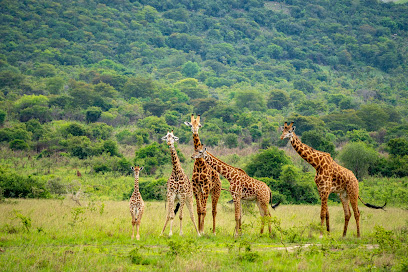
Grand Legacy Hotel
Discover comfort and warmth at Grand Legacy Hotel, a premier Kigali destination blending modern amenities with Rwandan charm.
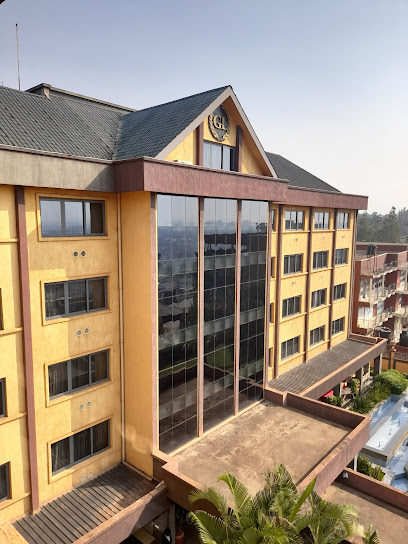
Nyungwe Forest National Park
Explore the rich biodiversity and stunning landscapes of Nyungwe Forest National Park, a must-visit destination for nature lovers and adventure seekers in Rwanda.
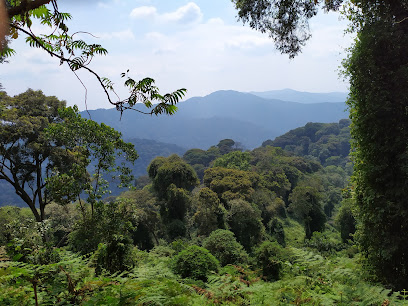
King's Palace Museum
Discover the regal history of Rwanda at the King's Palace Museum, a cultural treasure trove showcasing royal artifacts and traditional architecture.
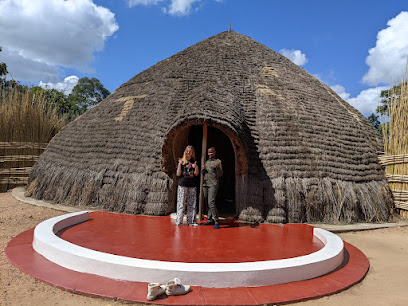
Bashana Companies & Imigongo Art Center
Discover the charm of Rwandan culture at Bashana Companies & Imigongo Art Center, a perfect blend of coffee and artistry in Kayonza.
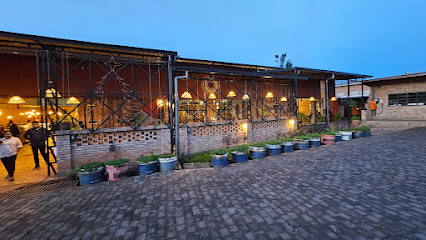
Kandt House Museum
Explore Rwanda's rich history at Kandt House Museum - a captivating blend of culture, heritage, and natural beauty in Kigali.
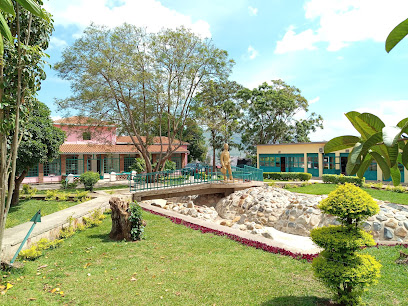
Mantis EPIC Hotel & Suites
Discover unparalleled luxury and comfort at Mantis EPIC Hotel & Suites, your perfect getaway in the heart of Nyagatare, Rwanda.
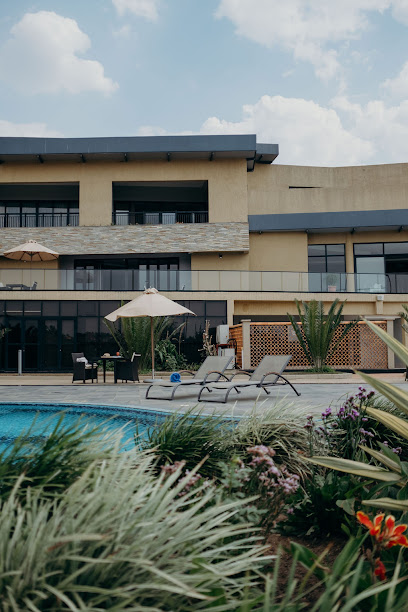
Mantis Akagera Game Lodge
Discover the perfect blend of luxury and adventure at Mantis Akagera Game Lodge, your gateway to Rwanda's stunning Akagera National Park.
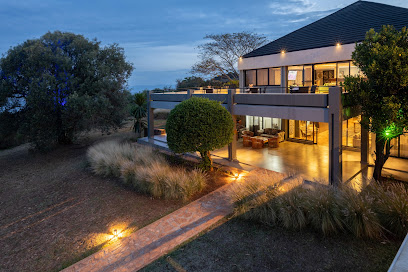
UMVA Muhazi
Experience the serene beauty of UMVA Muhazi Lodge, where nature meets comfort on the shores of Lake Muhazi in Rwanda.
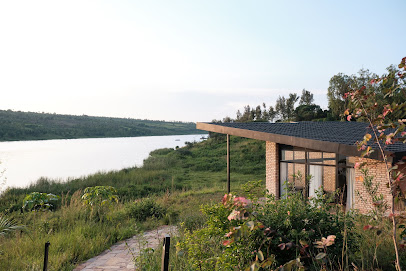
Akagera Rhino Lodge
Discover comfort and wildlife at Akagera Rhino Lodge, the gateway to Akagera National Park's stunning landscapes and diverse wildlife experiences.
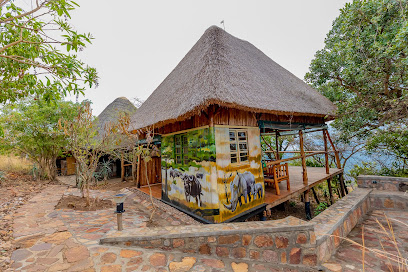
Discover Rwanda Youth Hostel
Experience Kigali's vibrant culture and welcoming atmosphere at Discover Rwanda Youth Hostel, the ideal base for your Rwandan adventures.
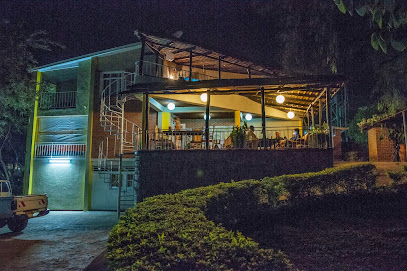
Lake Muhazi
Discover the tranquil beauty of Lake Muhazi, a serene escape near Kigali, perfect for outdoor adventures and relaxation amidst nature.
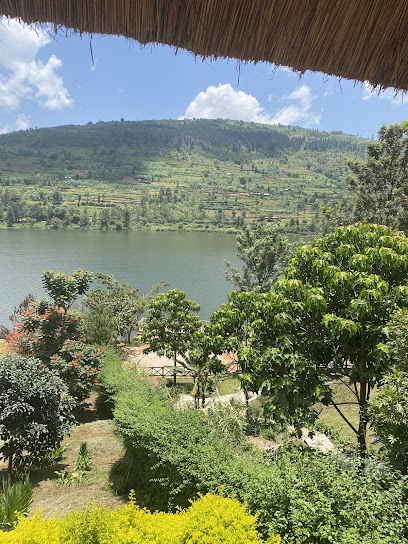
Vintage Cottage
Discover comfort and tranquility at Vintage Cottage, a charming hotel in Rwamagana, Rwanda, where nature and hospitality come together.
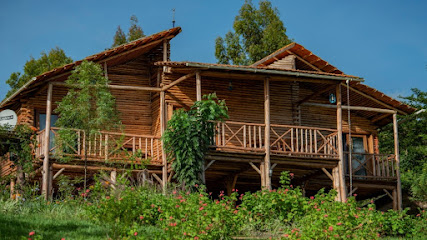
Shalom Safaris Rwanda
Experience the stunning landscapes and wildlife of Rwanda with Shalom Safaris, your premier tour operator for unforgettable safari adventures.
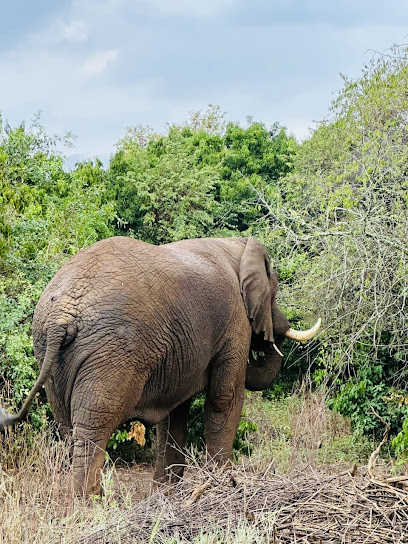
Unmissable attractions to see
Rusumo Falls
Explore the breathtaking Rusumo Falls, a stunning natural wonder on the Tanzania-Rwanda border, where adventure and tranquility meet.
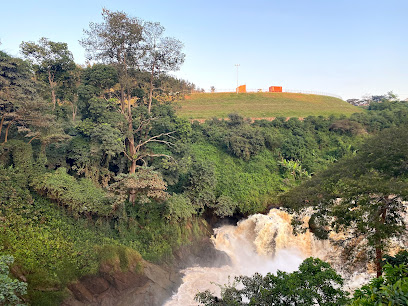
Gishwati-Mukura National Park and Biosphere Reserve
Explore the breathtaking Gishwati-Mukura National Park, a biodiversity hotspot in Rwanda, offering serene landscapes and vibrant wildlife experiences.
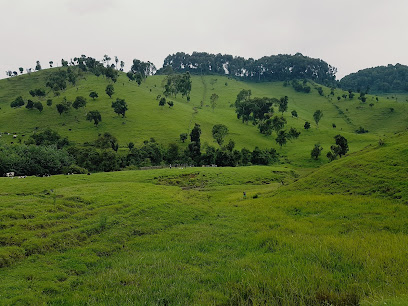
Akagera National Park North Gate (Exit Only)
Discover Rwanda's Akagera National Park, a haven for wildlife enthusiasts and nature lovers, where breathtaking landscapes meet rich biodiversity.
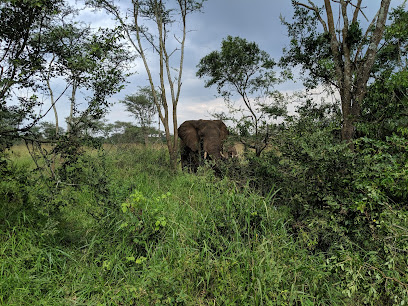
Akagera Neighbors
Discover Akagera Neighbors: Your gateway to adventure in Akagera National Park with cozy lodging and delightful dining options.
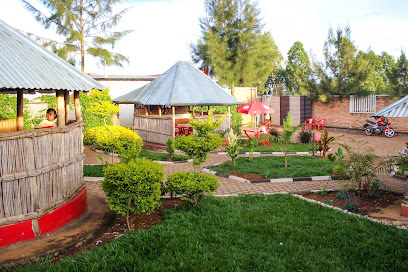
Muyumbu Campsite
Experience the wild beauty of Akagera National Park at Muyumbu Campsite, the perfect haven for camping and wildlife adventures in Rwanda.
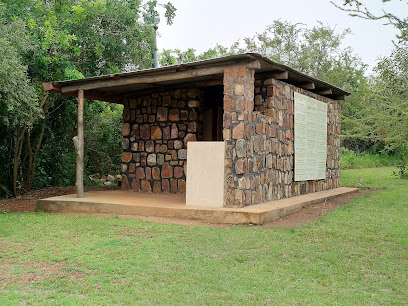
Go 2 Rwanda
Experience the beauty of Rwanda through personalized tours and adventures with Go 2 Rwanda, your gateway to this captivating African destination.

Plus 250 Safaris
Discover the beauty of Rwanda’s wildlife at Plus 250 Safaris, where unforgettable safari adventures await amidst stunning landscapes.
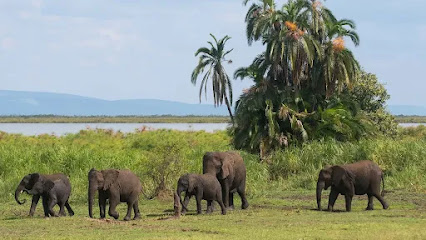
Ibere rya Bigogwe
Discover the serene beauty of Ibere rya Bigogwe, Rwanda's enchanting woods filled with diverse wildlife and stunning landscapes, perfect for outdoor adventures.
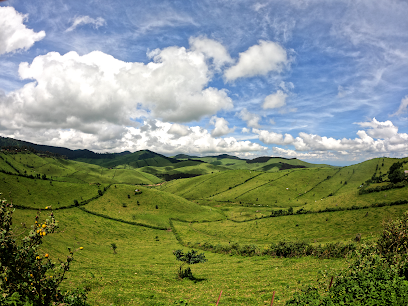
Akagera Community Tourism & Bike ride
Discover the beauty of Rwanda at Akagera Community Tourism & Bike Ride - a unique blend of nature, culture, and adventure.
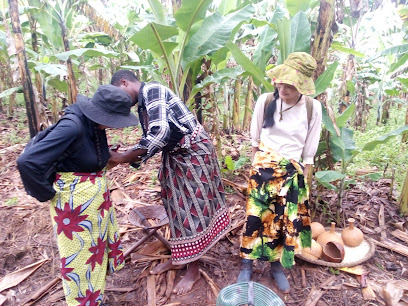
Akagera Reception (South)
Explore Akagera Reception (South) - Your gateway to the stunning wildlife and landscapes of Akagera National Park, Rwanda's treasure of nature.
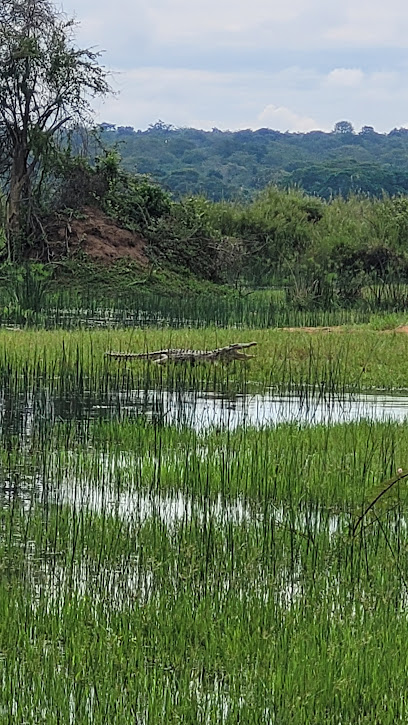
Izere Safaris Rwanda
Discover the vibrant wildlife and stunning landscapes at Izere Safaris Rwanda, a top destination for nature lovers and adventure seekers in Kigali.
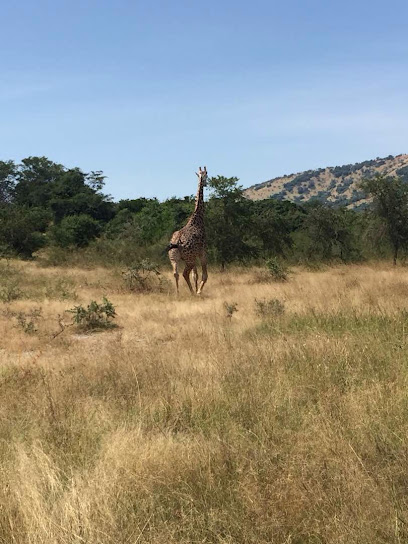
Lake Birengero
Explore the tranquil beauty of Lake Birengero in Akagera National Park, a stunning destination for nature lovers and adventure seekers alike.
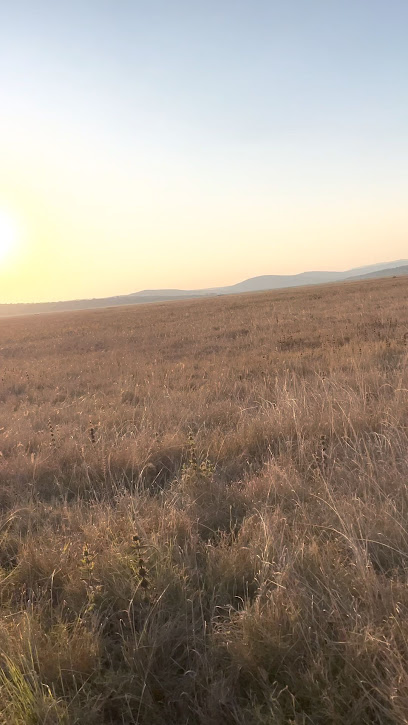
Essential places to dine
The Hut Restaurant and Boutique Hotel
Experience the best of Rwandan cuisine and boutique hospitality at The Hut Restaurant and Boutique Hotel in Kigali.
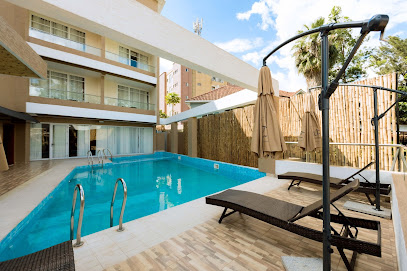
Kurry Kingdom
Discover authentic Indian flavors at Kurry Kingdom in Kigali – where every dish tells a story of tradition and taste.
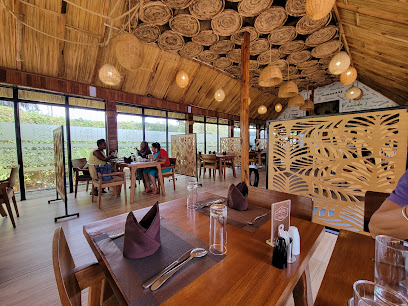
Repub Lounge
Experience Kigali's culinary delights at Repub Lounge - where great food meets vibrant atmosphere.
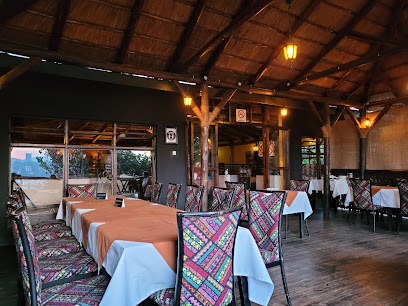
Soy Asian Table
Discover authentic South East Asian flavors at Soy Asian Table in Kigali, where every meal is a celebration of culinary artistry.
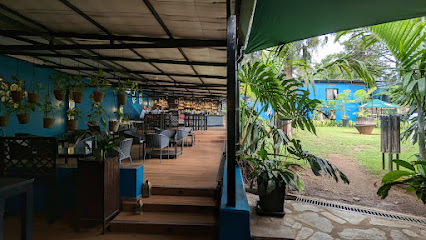
Casa Keza
Experience authentic Spanish cuisine at Casa Keza in Kigali, where vibrant flavors meet warm hospitality.
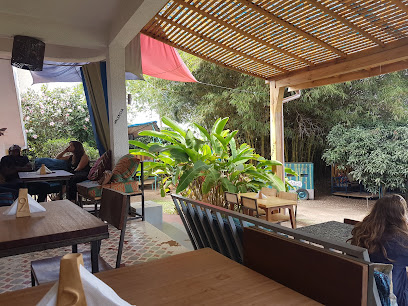
Poivre Noir
Discover exquisite dining at Poivre Noir - where local flavors meet international flair in Kigali's vibrant culinary scene.
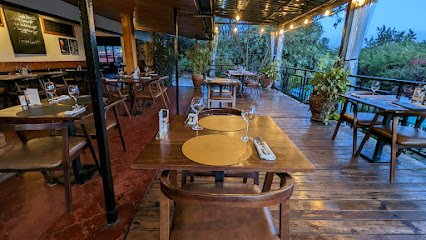
Akagera Game Lodge
Discover luxury in nature at Akagera Game Lodge in Rwanda's stunning Akagera National Park - where wildlife meets comfort.
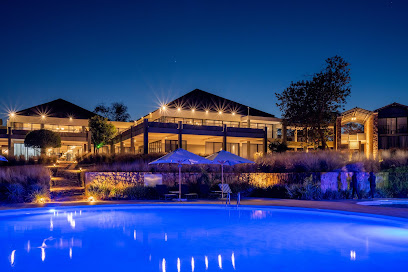
Brachetto Restaurant
Experience the fusion of Rwandan flavors and modern cuisine at Brachetto Restaurant in Kigali.
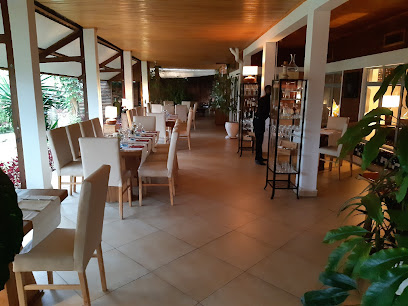
Filini Italian Restaurant
Experience authentic Italian cuisine at Filini Italian Restaurant in Kigali – where exquisite flavors meet warm hospitality.
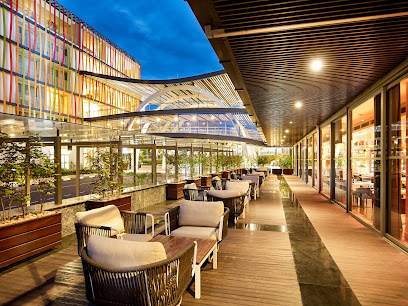
Akagera Rhino Lodge
Discover luxury and nature intertwined at Akagera Rhino Lodge near Rwanda's stunning Akagera National Park.
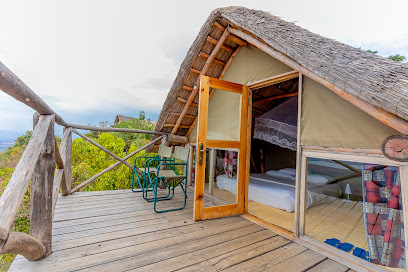
Indabo Café Kiyovu
Discover Indabo Café Kiyovu: A serene café and plant nursery offering exquisite coffee experiences in Kigali's vibrant heart.
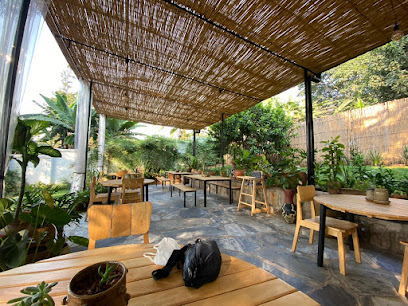
Meza Malonga
Experience exquisite dining at Meza Malonga in Kigali - where Rwandan flavors meet international cuisine in a vibrant atmosphere.
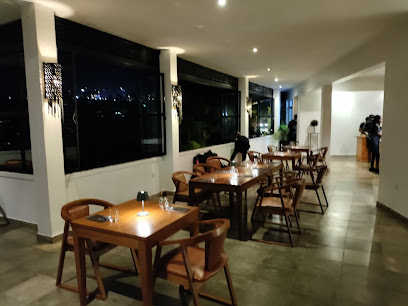
Akagera National Park Reception
Explore Akagera National Park Reception: A gateway to breathtaking landscapes and rich wildlife experiences in Rwanda.
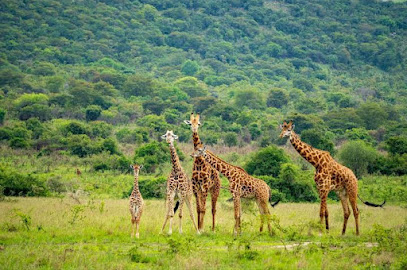
Nyurah
Discover the finest dining experience in Kigali at Nyurah - where culinary artistry meets exceptional service.

Zaaffran Indian Restaurant
Experience authentic Indian cuisine at Zaaffran Indian Restaurant in Kigali - where tradition meets taste in every dish.
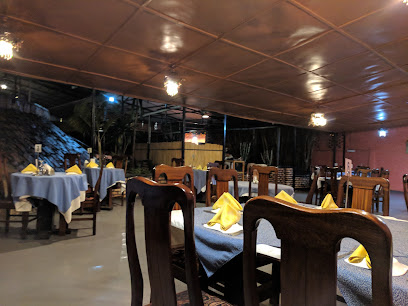
Markets, malls and hidden boutiques
Inema Arts Centre
Discover Rwandan creativity at Inema Arts Centre, a vibrant art hub showcasing local talent and culture in the heart of Kigali.
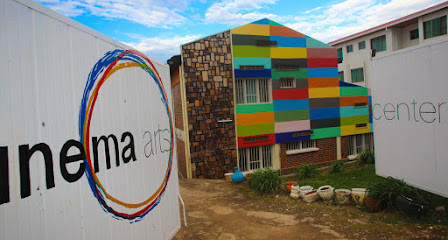
Akagera National Park Rwanda
Discover the enchanting wilderness of Akagera National Park, a haven for wildlife enthusiasts and nature lovers in Rwanda.
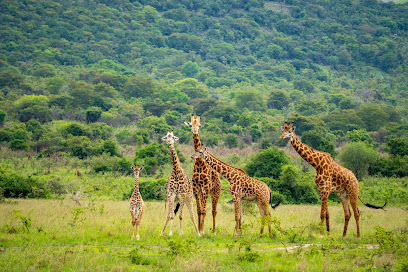
Akagera National Park
Experience the breathtaking wildlife and diverse ecosystems of Akagera National Park, Rwanda's premier national park for nature lovers.
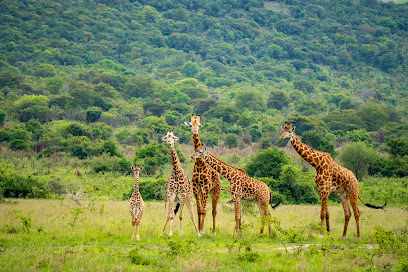
Bashana Companies & Imigongo Art Center
Discover the vibrant Imigongo art and indulge in exquisite coffee at Bashana Companies & Imigongo Art Center in Kayonza, Rwanda.
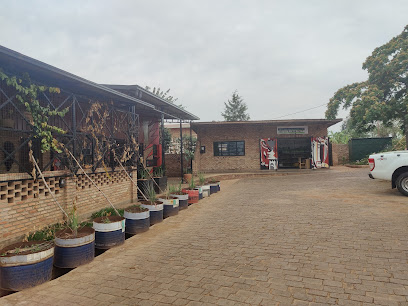
Mantis Akagera Game Lodge
Explore the wilderness at Mantis Akagera Game Lodge, a luxurious sanctuary in Rwanda's Akagera National Park, perfect for wildlife enthusiasts.
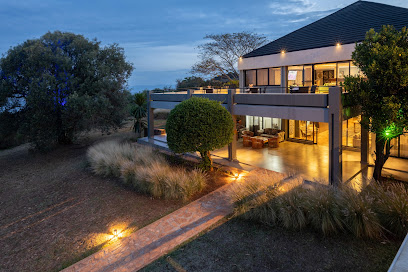
Niyo Arts Gallery
Experience the vibrant culture of Rwanda through art at Niyo Arts Gallery, a true gem in Kigali's creative scene.
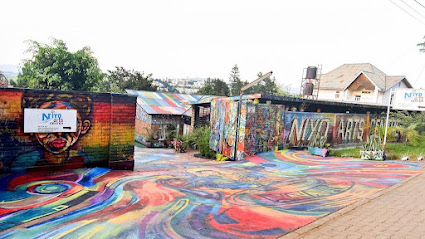
Akagera Rhino Lodge
Discover the perfect blend of comfort and adventure at Akagera Rhino Lodge, nestled beside Rwanda's breathtaking Akagera National Park.
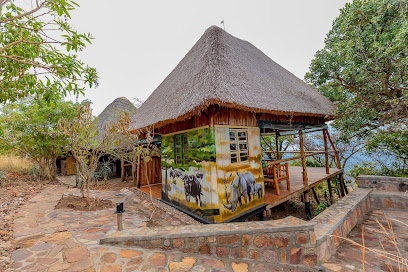
Go Kigali Tours & Boutique
Discover unique souvenirs and immersive tours at Go Kigali Tours & Boutique, where Rwandan culture meets exceptional customer service.
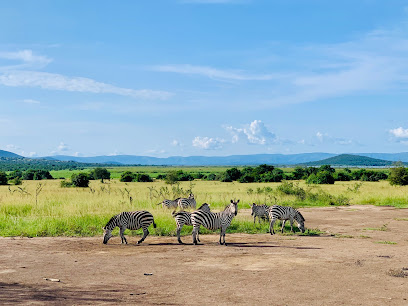
Ruzizi Tented Lodge
Immerse yourself in nature's embrace at Ruzizi Tented Lodge, where luxury meets the wild in Akagera National Park.
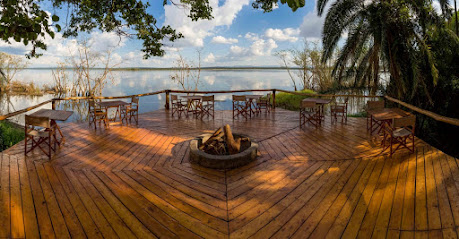
Choose Kigali
Explore the artistic heart of Kigali at Choose Kigali, where local culture and creativity flourish in a serene environment.
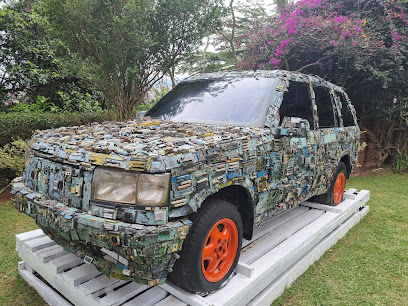
Akagera National Park Reception
Experience the serene Akagera National Park Reception, a perfect café for nature lovers and adventurers in Rwanda's breathtaking wilderness.
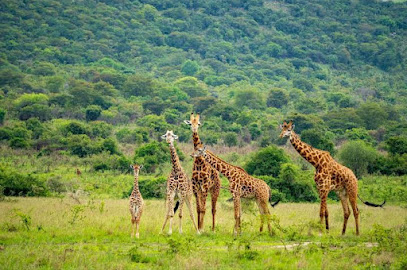
Akagera National Park North Gate (Exit Only)
Discover the majestic wildlife and breathtaking scenery of Akagera National Park, Rwanda's premier national park for safari adventures.
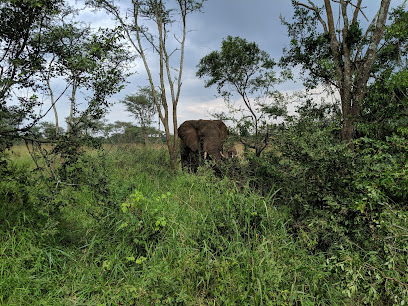
Abraham Konga
Explore the heart of Rwandan craftsmanship at Abraham Konga, where unique collectibles and authentic African goods await your discovery.
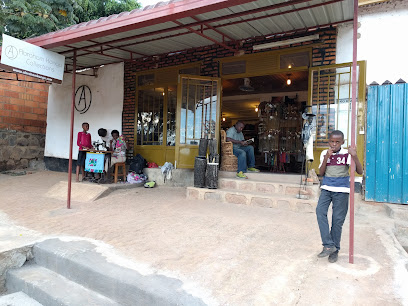
Akagera Neighbors
Discover Akagera Neighbors: Your ideal lodging and dining destination near Akagera National Park, blending comfort with adventure.
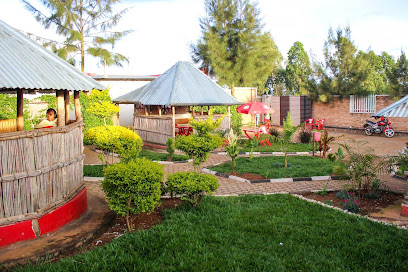
Akagera Business Group, Head office
Discover reliable auto services and chauffeur options at Akagera Business Group, your gateway to exploring Kigali and beyond.

Essential bars & hidden hideouts
Chillax Lounge
Experience the vibrant nightlife of Kigali at Chillax Lounge, where delicious cuisine, refreshing drinks, and lively entertainment await you.
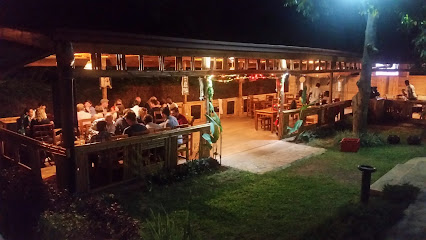
Pearl Lounge Kigali
Discover Pearl Lounge Kigali: a serene retreat at the airport, offering a delightful range of drinks and snacks in a comfortable atmosphere.
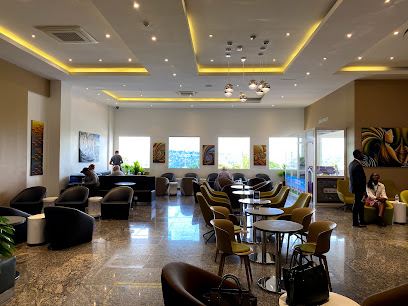
Heroes Lounge
Experience the vibrant flavors of Kigali at Heroes Lounge, where delicious grilled dishes meet a lively lounge atmosphere.
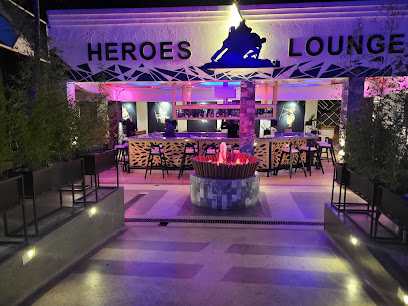
Akagera Neighbors
Discover authentic Rwandan culture at Akagera Neighbors, your cozy lodging and dining experience in Kabarondo.
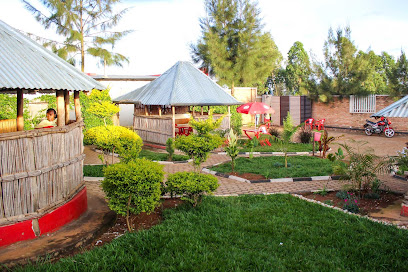
KIGALI LOUNGE
Experience the vibrant nightlife and inviting atmosphere at Kigali Lounge, the perfect blend of relaxation and excitement in Kigali.

Akagera café
Akagera Café in Rwinkwavu offers delightful local dishes and stunning views, perfect for a restful stop before or after your Akagera National Park adventures.
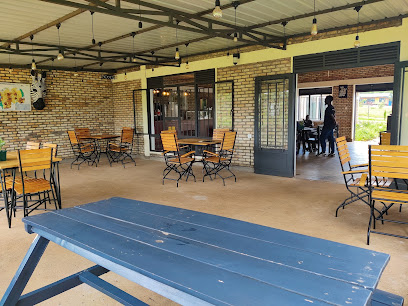
Rangers Pub
Experience the vibrant flavors of Rwanda at Rangers Pub, a must-visit grill in Kigali perfect for tourists seeking local cuisine.
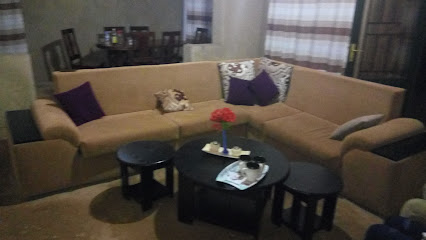
Inferno Lounge Bar
Discover the vibrant nightlife of Kigali at Inferno Lounge Bar, where great cocktails and live entertainment await you for an unforgettable experience.

Akiwacu Center Kumakaro
Experience the authentic taste of Rwanda at Akiwacu Center Kumakaro, where delicious grilled dishes meet a warm, inviting atmosphere.
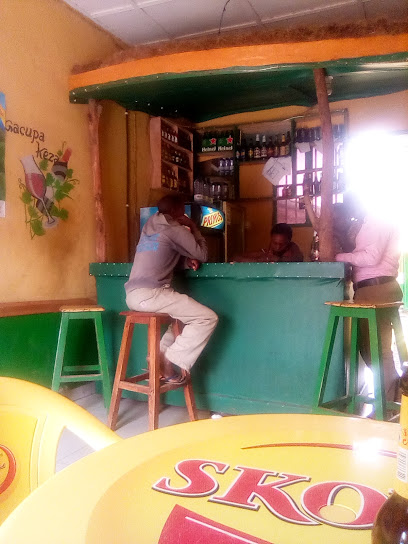
Legacy Lounge & Wine Bar
Experience the vibrant nightlife at Legacy Lounge & Wine Bar, Kigali’s premier destination for exquisite wines and lively entertainment.
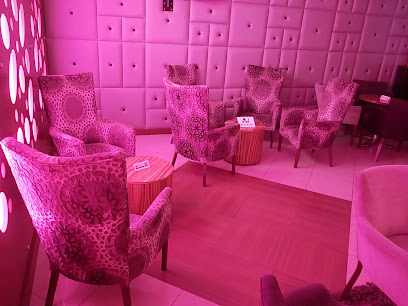
The Lounge
Experience the vibrant ambiance of The Lounge in Kigali, where relaxation meets local culture in a stylish bar setting.
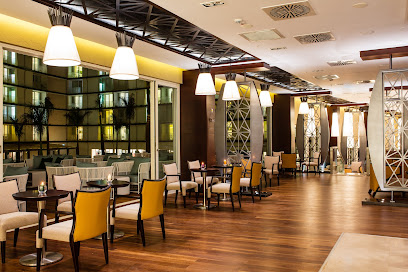
WAKANDA PUB (bar & restaurant and lodges)
Discover the vibrant dining and nightlife scene at Wakanda Pub, where local flavors meet a lively atmosphere in the heart of Ruhengeri, Rwanda.

WhatsApp Bar
Experience the vibrant atmosphere of WhatsApp Bar in Butare, where locals and travelers unite over drinks and laughter in a welcoming setting.

Whatsapp Bar
Experience the lively atmosphere of Whatsapp Bar in Ruhengeri, a perfect spot for unwinding and enjoying local culture.
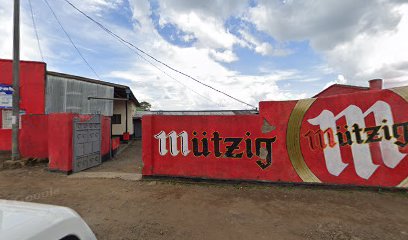
Local Phrases about Akagera National Park
-
- HelloMuraho
[moo-rah-ho] - GoodbyeMurabeho
[moo-rah-beh-ho] - YesYego
[yeh-go] - NoOya
[oh-yah] - Please/You're welcomeKurabika
[koo-rah-bee-kah] - Thank youMurakoze
[moo-rah-koh-zeh] - Excuse me/SorryTubabarire
[too-bah-bah-ree-reh] - How are you?Amakuru?
[ah-mah-koo-roo] - Fine. And you?Ni meza. Na wewe?
[nee meh-zah. nah weh-weh] - Do you speak English?Wibwira English?
[wee-bwee-rah English] - I don't understandNtawumva
[ntah-woo-mvah]
- HelloMuraho
-
- I'd like to see the menu, pleaseNdakuranga kuyaza ijambo, mwakoze
[ndah-koo-rah-ngah koo-yah-zah ee-jahm-bo, mwah-koh-zeh] - I don't eat meatSiya imyenda
[see-yah ee-myen-dah] - Cheers!Amahoro!
[ah-mah-hoh-roh] - I would like to pay, pleaseNdakuranga kugura, mwakoze
[ndah-koo-rah-ngah koo-goo-rah, mwah-koh-zeh]
- I'd like to see the menu, pleaseNdakuranga kuyaza ijambo, mwakoze
-
- Help!Ubwira!
[ooh-wee-rah] - Go away!Jya mbere!
[jee-yah mm-beh-reh] - Call the Police!Sibyuma polisi!
[see-byoo-mah poh-lee-see] - Call a doctor!Sibyuma dokotera!
[see-byoo-mah doh-koh-teh-rah] - I'm lostNdi mukeri
[ndee moo-keh-ree] - I'm illNdi kuzibagira
[ndee koo-zee-bah-gee-rah]
- Help!Ubwira!
-
- I'd like to buy...Ndakuranga kugura...
[ndah-koo-rah-ngah koo-goo-rah...] - I'm just lookingNdabona gusa
[ndah-boh-nah goo-sah] - How much is it?Ni amafaranga ye?
[nee ah-mah-fah-rahn-gah yeh] - That's too expensiveNi byiza kandi ni byinshi
[nee bee-zah kahn-dee nee bee-yin-shee] - Can you lower the price?Wibwira kurega amafaranga?
[wee-bwee-rah koo-reh-gah ah-mah-fah-rahn-gah]
- I'd like to buy...Ndakuranga kugura...
-
- What time is it?Saa ngapi?
[sah ngah-pee] - It's one o'clockNi saa y'umwe
[nee sah ee-oo-mweh] - Half past (10)Ku gicani (10)
[koo gee-chah-nee (10)] - MorningIgisibo
[ee-gee-see-bo] - AfternoonIkibondo
[ee-kee-bohn-doh] - EveningIgihembwe
[ee-gee-hem-bweh] - YesterdayEjo
[eh-joh] - TodayUyu munsi
[oo-yoo moo-nsee] - TomorrowEjo hasomwa
[eh-joh hah-sohm-wah] - 1Rimwe
[ree-mweh] - 2Kabiri
[kah-bee-ree] - 3Gatatu
[gah-tah-too] - 4Kane
[kah-neh] - 5Gatanu
[gah-tah-noo] - 6Gatandatu
[gah-tahn-dah-too] - 7Kumwe
[koo-mweh] - 8Ruhoko
[roo-hoh-koh] - 9Rugoma
[roo-goh-mah] - 10Ruhagana
[roo-hah-gah-nah]
- What time is it?Saa ngapi?
-
- Where's a/the...?Aho...
[ah-hoh...] - What's the address?Iki ni aho?
[ee-kee nee ah-hoh] - Can you show me (on the map)?Wibwira mbone (ku mapi)?
[wee-bwee-rah mm-boh-neh (koo mah-pee)] - When's the next (bus)?Busanze iki?
[boo-sahn-zeh ee-kee] - A ticket (to ....)Igiciro (ku ...)
[ee-gee-chee-roh (koo ...)]
- Where's a/the...?Aho...
History of Akagera National Park
-
Long before Akagera National Park was established, the region was inhabited by diverse ethnic groups, including the Hutu, Tutsi, and Twa people. These communities lived off the land, engaging in farming, fishing, and cattle herding, making use of the rich biodiversity and fertile soils of the area.
-
In 1934, during the Belgian colonial period, Akagera National Park was established to protect its unique savannah, woodland, and wetland ecosystems. Named after the Akagera River that flows along its eastern boundary, the park originally covered over 2,500 square kilometers, making it one of the largest protected areas in Africa.
-
After Rwanda gained independence in 1962, Akagera National Park faced numerous challenges. Poaching, human encroachment, and political instability resulted in a significant decline in wildlife populations. The park's area was also reduced by nearly half to accommodate returning refugees and local communities.
-
The Rwandan Genocide of 1994 had a devastating impact on Akagera National Park. Thousands of refugees fled into the park, leading to increased poaching, deforestation, and habitat destruction. The park's infrastructure was severely damaged, and many animal species were pushed to the brink of extinction.
-
In 2010, the Rwandan government partnered with the African Parks Network to revitalize Akagera National Park. Through extensive anti-poaching measures, community engagement, and reintroduction programs, the park has seen a remarkable recovery. Key species such as lions and rhinos have been reintroduced, and the park now stands as a symbol of Rwanda's commitment to conservation.
-
Akagera National Park holds cultural significance for the local communities. The park's landscapes are featured in traditional Rwandan folklore and songs, and the Akagera River is considered a vital water source with spiritual importance. Today, the park's management works closely with local residents to ensure sustainable tourism and conservation efforts that respect cultural heritage.
Akagera National Park Essentials
-
Akagera National Park is located in the northeastern part of Rwanda. The closest major city is Kigali, the capital of Rwanda, which is approximately 110 kilometers away. The most convenient way to reach Akagera is by road. You can hire a private car or use a tour operator from Kigali; the journey typically takes about 2.5 to 3 hours. There are also organized shuttle services that operate between Kigali and Akagera National Park.
-
Within Akagera National Park, the primary mode of transportation is by vehicle. Self-driving is allowed, but a 4x4 vehicle is recommended due to the park's rugged terrain. Guided game drives are also available and can be arranged through the park's visitor center or your lodge. Additionally, boat safaris on Lake Ihema are a popular way to explore the park's waterways and see aquatic wildlife.
-
The official currency of Rwanda is the Rwandan Franc (RWF). Credit cards are accepted at most lodges and the park’s visitor center, but it’s advisable to carry some cash for smaller transactions and tips. ATMs are available in Kigali, and it’s a good idea to withdraw sufficient cash before heading to the park, as there are no ATMs within Akagera.
-
Akagera National Park is generally safe for tourists. However, like any travel destination, it is wise to take common precautions. Avoid walking alone at night and keep your belongings secure. In the park, always stay inside your vehicle during game drives and adhere to the park rules. Kigali, the gateway city to Akagera, is generally safe but be cautious in crowded places to avoid pickpocketing.
-
In case of an emergency within Akagera National Park, contact the park's visitor center immediately. They can coordinate assistance and guide you to the nearest medical facilities. For serious medical emergencies, it may be necessary to return to Kigali, where more comprehensive medical services are available. It is highly recommended to have travel insurance that covers medical emergencies and evacuation.
-
Fashion: Do wear neutral-colored clothing to blend into the natural surroundings. Avoid bright colors that can startle wildlife. Religion: Do be respectful of local customs and traditions. Rwanda is a predominantly Christian country, and modest dress is appreciated. Public Transport: Do respect local customs on public transport; giving up your seat for elders is a common courtesy. Greetings: Do greet people with a handshake and a smile. Learning a few words in Kinyarwanda, such as 'Muraho' (hello), is appreciated. Eating & Drinking: Do try local Rwandan cuisine, but be mindful of hygiene. Drink bottled water to avoid waterborne illnesses.
-
To experience Akagera National Park like a local, consider visiting during the dry season (June to September) for optimal wildlife viewing. Engage with park rangers and guides—they are knowledgeable and can share fascinating insights about the park's flora and fauna. Participate in a night game drive or a walking safari for a unique perspective. Finally, don’t miss the chance to visit the local communities around the park to learn about their way of life and support community-based tourism initiatives.
Trending Landmarks in Akagera National Park
-
Kigali Genocide Memorial
-
Akagera National Park Rwanda
-
Grand Legacy Hotel
-
Nyungwe Forest National Park
-
King's Palace Museum
-
Bashana Companies & Imigongo Art Center
-
Kandt House Museum
-
Mantis EPIC Hotel & Suites
-
Mantis Akagera Game Lodge
-
UMVA Muhazi
-
Akagera Rhino Lodge
-
Discover Rwanda Youth Hostel
-
Lake Muhazi
-
Vintage Cottage
-
Shalom Safaris Rwanda
Nearby Cities to Akagera National Park
-
Things To Do in Nyamata
-
Things To Do in Nyagatare
-
Things To Do in Kirundo
-
Things To Do in Muhanga
-
Things To Do in Muyinga
-
Things To Do in Ruhengeri
-
Things To Do in Butare
-
Things To Do in Bukoba
-
Things To Do in Mbarara
-
Things To Do in Karongi
-
Things To Do in Ngozi
-
Things To Do in Kibuye
-
Things To Do in Rubavu
-
Things To Do in Gisenyi
-
Things To Do in Kayanza











